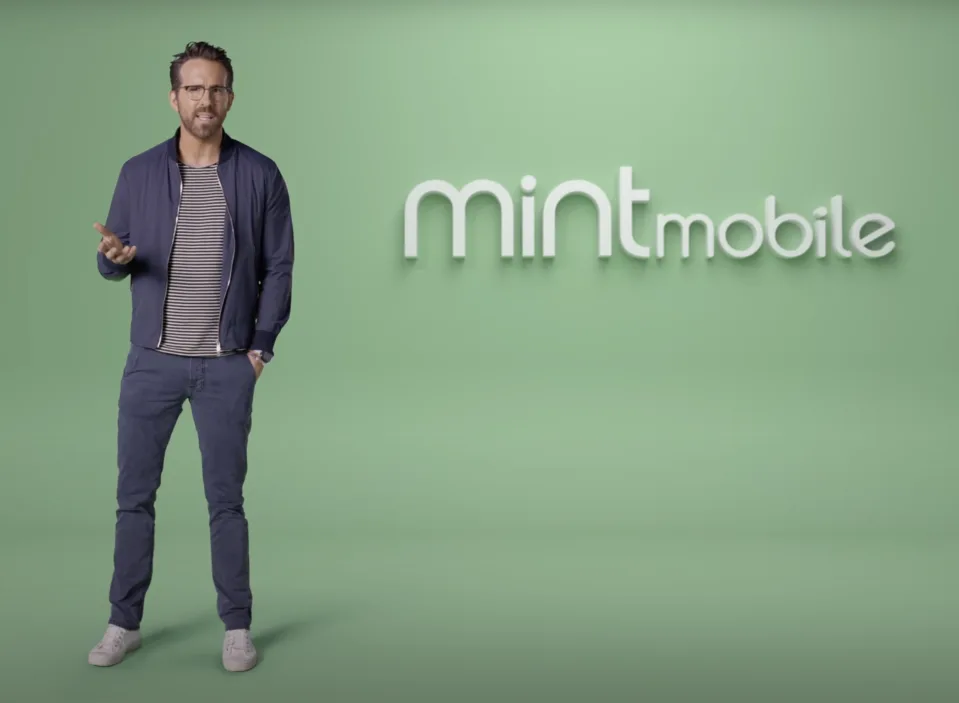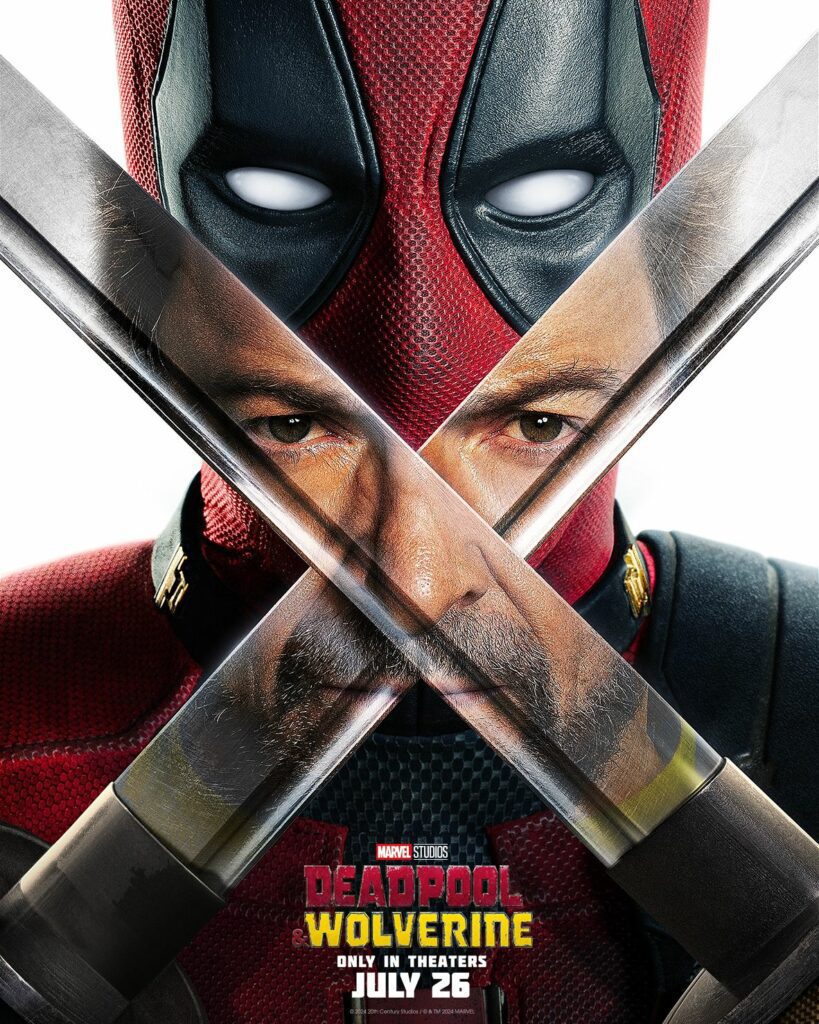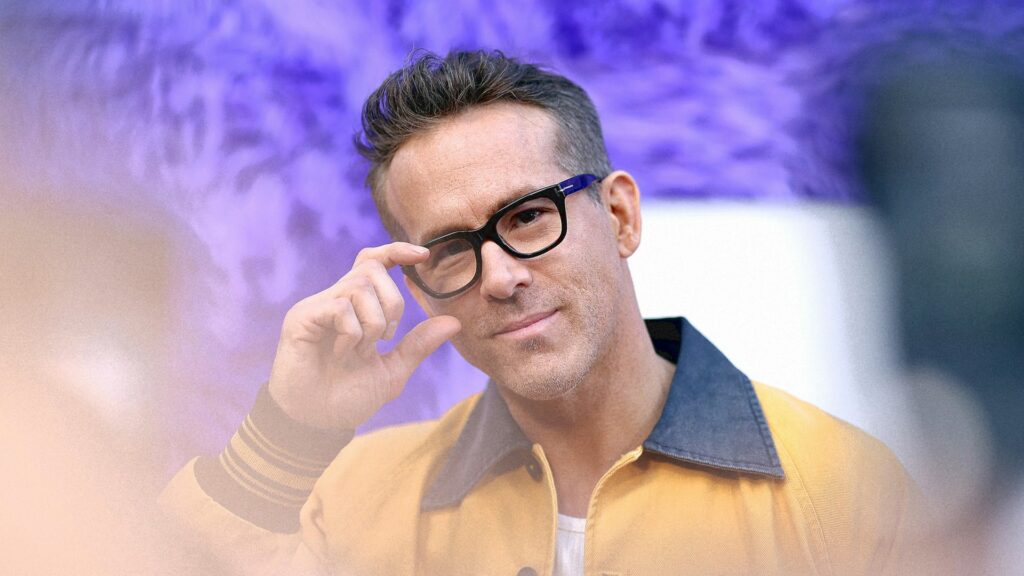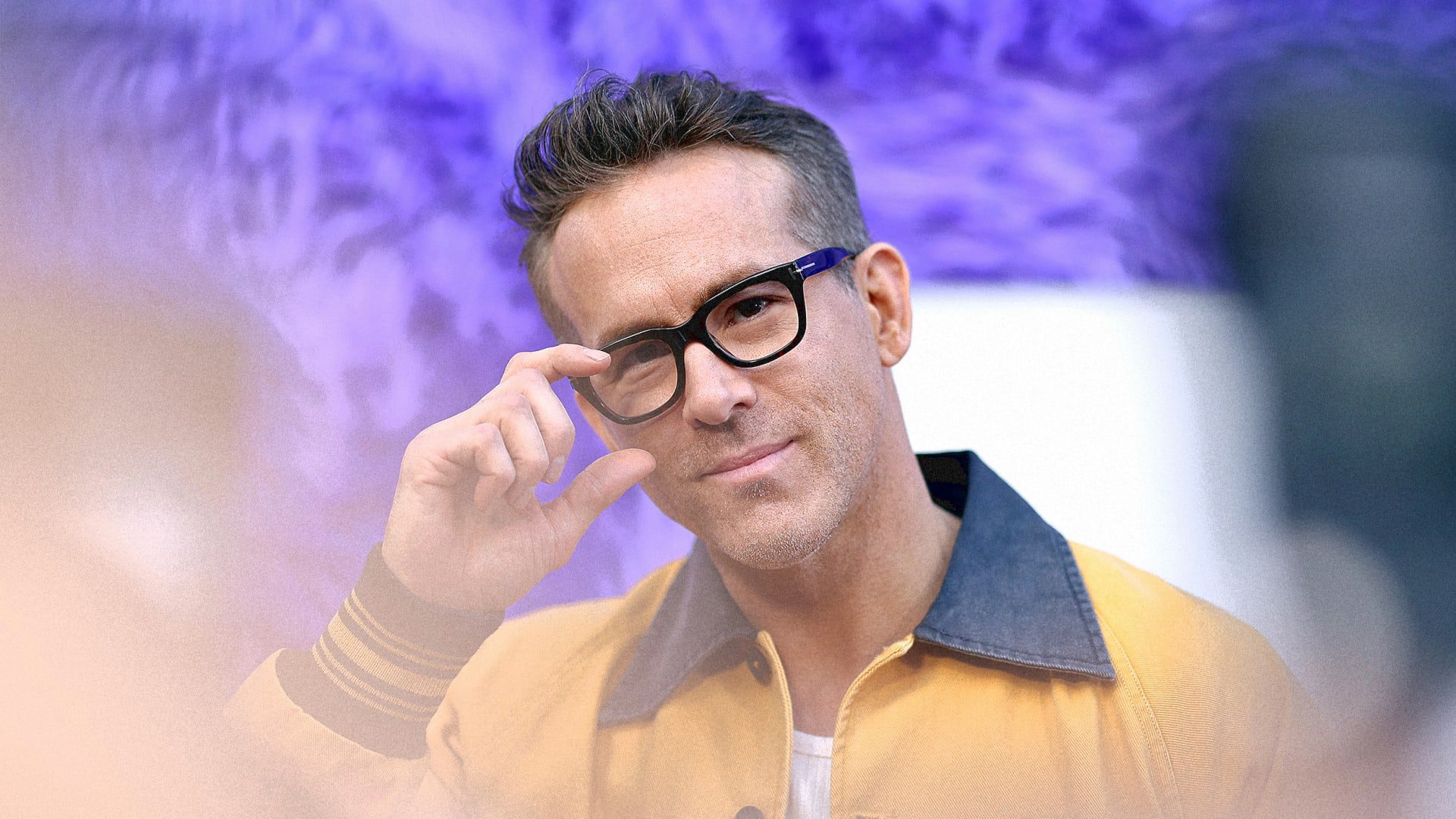The Art of Authenticity, Humour, and Strategic Brilliance
Ryan Reynolds isn’t just a Hollywood superstar; he’s a marketing genius. His career trajectory offers profound lessons on leveraging personal brand, humour, and storytelling to transform businesses and promote films in ways that stand out in the crowded marketplace.
Whether it’s his stake in Aviation Gin, Mint Mobile, blockbuster movies like Deadpool and Wolverine, or Wrexham AFC ownership, Ryan Reynolds demonstrates how a unique blend of creativity, authenticity, and strategic partnerships can turn ordinary into extraordinary.
Let’s unpack the marketing magic behind Ryan Reynolds and the lessons that can elevate your brand.
View this post on Instagram
Authenticity: The Cornerstone of Reynolds’ Brand
At the heart of Ryan Reynolds’ success is his authenticity. Reynolds doesn’t just sell a product; he sells a relatable, honest version of himself. He often combines his public persona—a witty, self-deprecating, and likeable guy—with his marketing efforts.
Case Study: Aviation Gin
In 2018, Reynolds acquired an ownership stake in Aviation Gin. While celebrity-owned alcohol brands are nothing new, Reynolds’ approach was. Instead of just slapping his name on the bottle, he became the face of the brand, weaving his trademark humour into its identity.
Humorous Ads: His ads for Aviation Gin, such as the viral “The Process” video, brilliantly mocked the over-the-top seriousness of traditional liquor commercials. The deadpan humour was pure Reynolds, and it worked. By 2020, Aviation Gin was sold for a whopping $610 million to Diageo, a testament to how Reynolds’ personal touch drove brand growth.
Transparency & Authenticity: When Peloton faced backlash for a controversial ad, Reynolds immediately created a response ad featuring the same actress, cleverly tying it into Aviation Gin. This quick, authentic response humanized the brand and made it culturally relevant.
“Ryan Reynolds’ marketing style isn’t just clever—it’s disarming,” said David Aaker, marketing professor and brand strategy expert. “His ability to connect authenticity with humor makes his brands feel personal, rather than corporate. This builds trust and turns consumers into advocates.”
Lesson: Consumers crave authenticity. Brands that show vulnerability and humour instead of perfection build stronger connections with their audience. When marketing your business, being real will always trump being polished.

Humour as a Strategic Tool
Ryan Reynolds uses humour as a strategic weapon in his marketing arsenal. He understands that humour breaks down barriers, makes brands memorable, and encourages sharing—especially in an era where viral content drives attention.
Case Study: Mint Mobile
In 2019, Reynolds bought a stake in Mint Mobile, a budget wireless carrier. With his signature humour, Reynolds positioned Mint Mobile as the cheeky underdog taking on industry giants.
Low-Budget Ads, High-Impact Results: In one of his ads, Reynolds explicitly mentions their low budget for the ad while delivering a punchline that the savings were passed on to the customers. It was a clever way to turn a potential weakness into a strength.
Breaking the Fourth Wall: Reynolds often breaks the fourth wall in Mint Mobile ads, addressing the audience directly with wit and transparency about the product. This unorthodox approach led to massive customer growth, culminating in Mint Mobile’s acquisition by T-Mobile in 2023 for up to $1.35 billion.
Jean-Louis Gassée, a veteran tech executive, commented on Reynolds’ approach to Mint Mobile, saying, “Reynolds is tapping into the growing demand for authenticity in a cynical industry. His humour dismantles the traditional corporate tone, making the brand feel approachable and human.”
Lesson: When done right, humour isn’t just about making people laugh; it’s about making your brand memorable and shareable. It’s a tool to differentiate in a saturated market. Humour that aligns with your brand voice can break down walls and foster customer loyalty.

Strategic Storytelling: Making Marketing Campaigns Go Viral
Reynolds is a master storyteller. Whether through his films, brand campaigns, or social media, he weaves narratives that resonate deeply. His ability to spin a compelling story is a driving force behind his marketing success.
Case Study: Deadpool
Reynolds’ role in the Deadpool films isn’t just limited to acting. He played a crucial role in shaping the film’s marketing strategy, which is now often cited as one of the best in modern film history.
Breaking Convention: Deadpool’s marketing was unconventional, just like the character. From billboards that parodied romance movies to hilarious social media interactions, the marketing never took itself too seriously. This resonated with the target audience, who appreciated the irreverence.
Fan Engagement: Reynolds also used social media to directly engage with fans, making them feel like part of the movie’s success. This community-building approach helped create a cult-like following, leading to the film’s latest offering, Deadpool & Wolverine, becoming the highest-grossing R-rated movie in history and a $1.14 billion global box office success.
“Deadpool’s marketing was a masterclass in audience segmentation. Reynolds knew exactly who he was talking to and leaned into the irreverent tone that resonated with them,” noted Seth Godin, marketing author and entrepreneur. “He wasn’t afraid to alienate the broader audience to make his core fans feel seen.”
Lesson: Storytelling is more than just a marketing tactic—it’s the backbone of a brand’s identity. Craft stories that align with your brand’s values and engage your audience emotionally. Use humour, emotion, or drama to make your marketing seen and felt.
Social Media Mastery: Building Engagement Through Authentic Connections
Reynolds doesn’t just post content on social media; he creates conversations. His use of platforms like Twitter and Instagram exemplifies how brands (personal or business) should approach social media—not as a broadcast channel but as a dialogue.
Case Study: Maximum Effort Marketing
Reynolds co-founded Maximum Effort, a production company responsible for creating viral content not just for his brands but also for other companies. Whether it’s Aviation Gin or Match.com’s infamous Satan ad, Maximum Effort specializes in content that leverages social media’s power.
Social Listening: Reynolds stays plugged into the cultural zeitgeist and uses this to fuel his content. The quick turnaround of ads in response to trending topics shows the importance of agility in modern marketing.
Engagement and Wit: Reynolds’ Twitter is a goldmine of witty comebacks, brand shout-outs, and genuine interactions with fans. This has created a loyal follower base that sees him as approachable and real.
Jonah Berger, author of Contagious: How Things Catch On, highlights Reynolds’s use of social media: “Ryan Reynolds’ success on social media comes from his ability to be both timely and timeless. He taps into current events with his posts but does so in a way that feels evergreen. It’s a balancing act few brands get right.”
Lesson: Social media is about engagement, not just promotion. Brands that succeed here interact authentically, listen to their audience, and aren’t afraid to inject personality into their content.
Strategic Partnerships: Amplifying Brand Reach
Reynolds knows the power of collaboration. He often partners with other brands or influencers to amplify his marketing campaigns and leverage their audiences to expand his reach.
Case Study: Hugh Jackman Feud
The playful feud between Reynolds and fellow actor Hugh Jackman is a masterclass in collaboration. While it started as a joke, it quickly became a viral phenomenon, with the two actors using their “feud” to promote each other’s businesses—Reynolds’ Aviation Gin and Jackman’s Laughing Man Coffee.
Cross-Promotion: By engaging in light-hearted banter, both stars could cross-promote their businesses in a natural and entertaining way, leading to increased visibility for both brands.
Marketing expert Gary Vaynerchuk once said, “Ryan Reynolds understands the value of relationships. His playful banter with Jackman isn’t just for show—it’s a calculated effort to elevate both their brands. Strategic partnerships like this create moments that people talk about.”
Lesson: Partnerships can broaden your reach and introduce your brand to new audiences. The key is finding partners whose values align with yours and creating content that feels organic, not forced.
Building a Global Community: The Wrexham AFC Story
In November 2020, Ryan Reynolds and fellow actor Rob McElhenney took their marketing prowess to the world of sports, buying Welsh football club Wrexham AFC for around $2.5 million. Wrexham AFC, the third-oldest professional football club in the world, had been struggling in the fifth tier of English football for years. The duo’s bold purchase of the club wasn’t just about ownership—it was about transforming a local underdog into a global sensation.
Reynolds and McElhenney didn’t just buy a club; they adopted an entire community, bringing their characteristic blend of authenticity, humour, and strategic vision to Wrexham. Their goal was clear: breathe new life into the club and uplift the community around it.
Case Study: Wrexham AFC
Revitalising the Club and Community: “Together with the players, the staff, the fans, and the local community, we can now pursue our goal to grow the team and return it to the EFL in front of increased attendance and in an improved stadium while making a positive difference to the wider community in Wrexham,” Reynolds said following the acquisition.
This isn’t just a PR line; Reynolds and McElhenney have already made significant strides in delivering this promise. Earlier in 2024, Wrexham AFC secured promotion to the EFL League One, a significant achievement in their long-term vision for the club.
View this post on Instagram
Investment in Infrastructure: The pair plan to quadruple the stadium’s seating capacity in the coming years, further solidifying Wrexham as a significant player in the football world. This level of investment shows their commitment to the club and the region as a whole. It’s estimated that their efforts have already given the North Wales region a “£1bn boost,” attracting fans worldwide.
A Global Fanbase: The club’s heartwarming underdog story has reached global audiences thanks to the Disney+ documentary Welcome to Wrexham. The show chronicles the club’s journey under Reynolds and McElhenney’s ownership, blending sports drama with personal narratives. This introduced the club to a worldwide audience and demonstrated the power of storytelling in sports marketing.
Strategic Philanthropy: Beyond the financial investments and entertainment, Reynolds and McElhenney have used Wrexham AFC as a vehicle for social good, supporting local charities and initiatives. Their approach to philanthropy is consistent with their overall brand of giving back while building a business.
Sports marketing expert Tim Crow commented on the duo’s impact: “Reynolds and McElhenney didn’t just buy a football club; they created a brand. They’ve harnessed the power of community, nostalgia, and storytelling to build something much larger than just a sports team. It’s a masterclass in creating global relevance from a local asset.”
Lesson: The Wrexham AFC story is a powerful example of how marketing extends beyond selling products or services. It’s about creating meaningful connections, telling compelling stories, and positively impacting the communities that support your brand. By taking a local club with a storied history and turning it into a global phenomenon, Reynolds shows that marketing strategies are about more than just commerce—it’s about culture, identity, and community.

Final Thoughts: Ryan Reynolds, the Modern Marketing Guru
“I’ve been fortunate to work with some of the best marketing minds in the world. I love marketing because it’s about storytelling at scale. Whether it’s a joke, a moving moment, or a piece of information, if you tell the right story to the right people in the right way, it works. I think people respond to honesty, humour, and a genuine connection.” – Ryan Reynolds.
Ryan Reynolds isn’t just riding the wave of his celebrity status. He’s actively shaping it, using a blend of authenticity, humour, storytelling, and strategic partnerships to build businesses that stand out. From Aviation Gin to Mint Mobile, film promotions, and now Wrexham AFC, Reynolds shows that success in marketing isn’t just about a big budget or flashy campaigns—it’s about being human.
Whether you’re a startup or an established business, there’s much to learn from Reynolds’ playbook. So, the next time you’re crafting a marketing campaign, ask yourself: What would Ryan Reynolds do?
By the Numbers: Reynolds’ Business Impact
- Aviation Gin Sale: $610 million (2020)
- Mint Mobile Sale: Up to $1.35 billion (2023)
- Deadpool & Wolverine Box Office: $1.14 billion million globally (2024) and the highest R-rated film in history.
- Wrexham AFC: Promotion to EFL League Two (2023) and EFL League One (2024), North Wales region estimated £1bn boost
These numbers reflect not just business success but marketing mastery. Reynolds didn’t just invest in these brands; he injected his personality, wit, and authenticity, creating cult followings and unforgettable marketing moments.
As marketing expert Scott Galloway aptly said, “Ryan Reynolds isn’t just a face for these brands. He’s their voice, their soul, and their driving force. That’s the new model for celebrity marketing—being truly invested, not just endorsing.”



